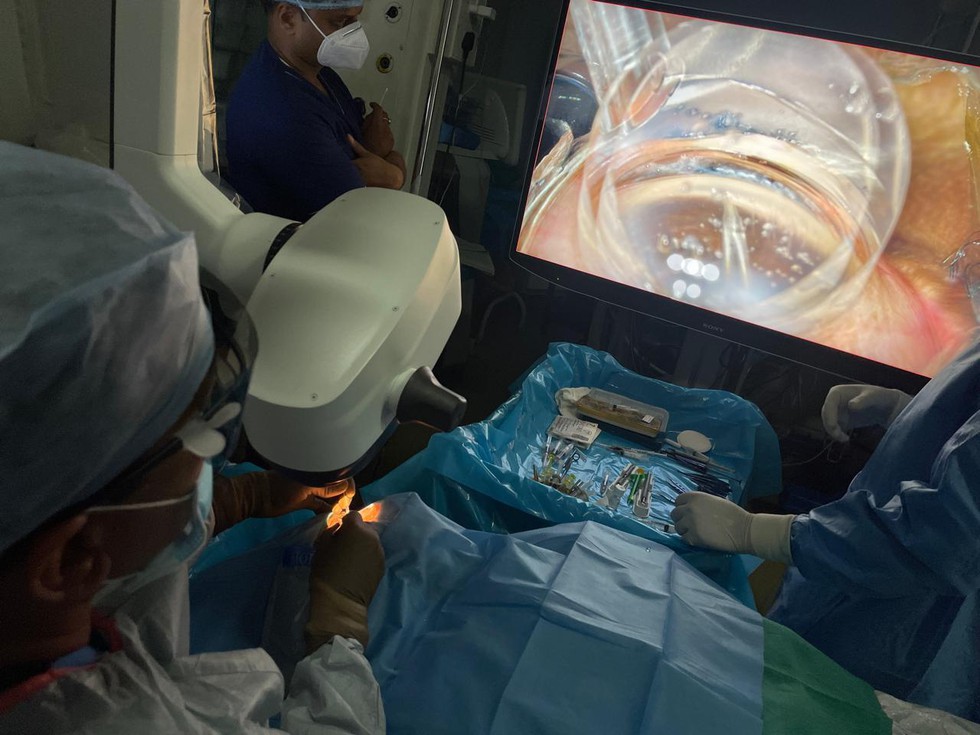
3D Microscope

28.04.2025
3D Microscope
|
For Prelims: What is a Microscope?What is a 3D Microscope?Features of the 3D Microscope |
Why in the news?
For the first time, the Indian Army's Department of Ophthalmology at Army Hospital (Research and Referral), New Delhi, has successfully performed Minimally Invasive Glaucoma Surgery (MIGS) using a 3D Microscope.
What is a Microscope?
- A microscope is an instrument that magnifies small objects, making them visible to the naked eye by bending (refracting) light rays through curved lenses.
- The most commonly used microscopes are optical microscopes, where visible light is focused through lenses to create an enlarged image.
What is a 3D Microscope?
- A 3D microscope produces images with depth information (X, Y, and Z axes), allowing researchers to visualize and measure the topography, volume, and internal structures of samples.
- Unlike traditional light microscopes, which provide flat, 2D images, 3D microscopes use advanced optical, electron, or computational techniques to capture and reconstruct three-dimensional data.
- This is particularly useful for studying complex biological or environmental samples, such as soil microbes, aquatic organisms.
Features of the 3D Microscope
- The 3D Microscope uses advanced three-dimensional visualisation, assisting in complex eye surgeries such as treatment for squint, cataract, corneal diseases, glaucoma, and retinal conditions.
- It employs special 3D polarisation glasses for surgeons and a 55-inch 4K ultra-HD display.
Key advantages include:
- Reduced surgical time and lower complication rates compared to conventional microscopes.
- Decreased endoilluminator power requirements, thereby reducing photo-toxicity risks.
- Ease of performing surgeries in complex and rare cases.
Source: PIB
With reference the 3D Microscope Consider the following statements:
1.A 3D microscope produces images with depth information (X, Y, and Z axes),
2.This is particularly useful for studying complex biological or environmental samples.
3.It employs special 2D polarisation glasses for surgeons and a 55-inch 3K ultra-HD display..
How many of the statements given above are correct?
A.Only one
B.Only two
C.All three
D.None
Answer B